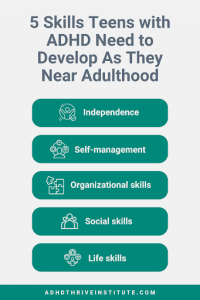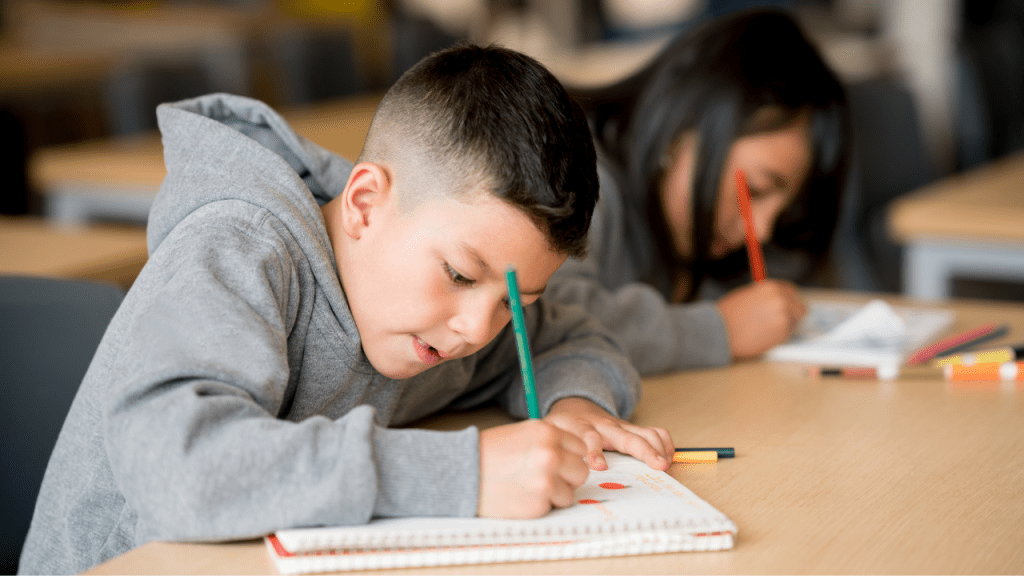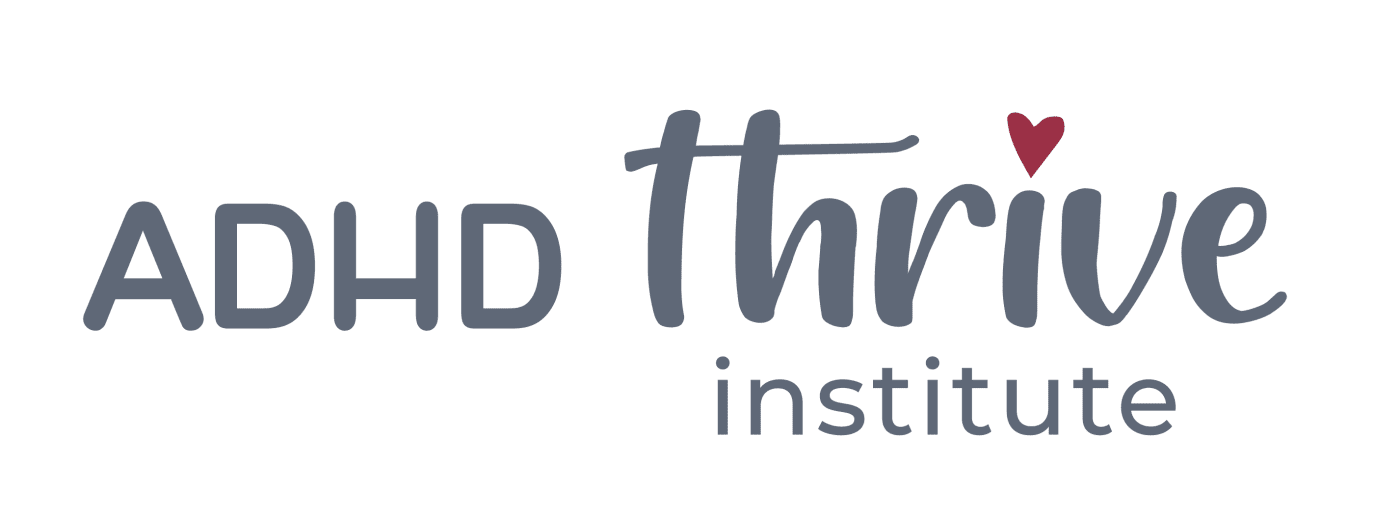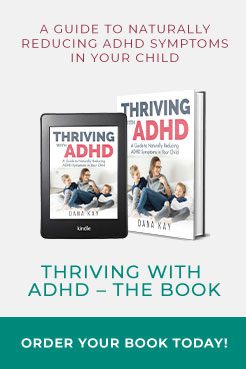As kids with ADHD grow, their challenges and needs evolve. Are you ready to help your ADHD child through the teen years and into adulthood?
If you’re feeling a little unsure, you’re in the right place because in this article, we’re going to talk about how ADHD changes as kids become teenagers and then adults. We’ll look at why it’s important to start helping them early to become more independent and manage their own lives better.
The Evolution of ADHD: Childhood to Adulthood
When my son was first diagnosed with ADHD at around the age of 4, his ADHD looked like him not being able to sit still even for five minutes. It looked like him playing too rough with his younger brother or friends at school. It looked like him constantly being on the move.
As he grew and matured, his ADHD changed too. Since he was first diagnosed, we have learned how to effectively reduce his ADHD symptoms naturally so that now, he’s thriving – completely medication free. He doesn’t have those tricky ADHD symptoms like he used to.
But the truth is, even if a parent does nothing to help their child manage his or her ADHD symptoms, their ADHD will still change over the years. That’s because as kids grow, their ADHD evolves.
So, what does ADHD look like as a child grows up? How do the challenges evolve, and what should you, as a parent, be doing differently to support them through various stages of their development?
Here are some things that you might have noticed in your child as they have gotten older:
A child who is super active when they’re young might get a bit calmer and might be able to sit still for longer as they get older, but challenges with staying focused might still be there.
As they hit those teenage years, new challenges might also come up—like tougher schoolwork, making and keeping friends, and handling more responsibilities.
For instance, a child who struggled to stay seated in elementary school might now do better sitting still but find it hard to manage a full day of homework or balance friendships with the pressures of high school. Does this sound familiar to you?
Share in the comments what changes you’ve noticed as your child with ADHD has grown over the years.
As you can imagine, with all of these changes, things can get a bit tricky.
That’s why it’s key for us as parents to change how we support our kids as they get older. What works for a young child might not work for a teenager, and what helps a teenager might be different when they become an adult.
In this article, we’re going to talk about these changes and how you can shift your parenting style to help your kids manage their ADHD as they grow up.
There are a few key skills that you especially want to focus on as your kids near their teenage years, and we’re going to discuss each of these in this article.
They are:
- Independence
- Self-management
- Organizational skills
- Social skills
- Life skills

Skill 1 – Building Independence in Daily Life
The first skill we want to work with them on as they near the teenage years is independence.
How do we do this? One way is by encouraging them to take on responsibilities around the house, like keeping their room tidy or helping out with meals. Start small—ask them to plan a family meal or take charge of their own laundry for the week. Celebrate their efforts, even if it’s not perfect. These small steps build confidence and teach valuable life skills.
It’s also about guiding them to take good care of themselves, like brushing their teeth, choosing their clothes, and cleaning their bodies well.
Setting small, realistic goals is another fantastic way to boost their confidence. When they meet these goals, it not only makes them feel good about themselves but also shows them that they can achieve things on their own.
But what about when things get tough? That’s where problem-solving skills come in. Teaching our kids how to think through problems and come up with solutions on their own is super important. This could be anything from figuring out how to fix a broken toy to deciding what to do if they forget their homework. These skills are important because they pave the way for handling bigger challenges as they grow.
Skill 2 – Developing Self-Management Skills
Once they’ve started taking on responsibilities and working toward more independence, the next skill for them to work on is self-management (like managing their time and emotions).
Let’s start with time management because it’s one that a lot of kids with ADHD really struggle with. They often have what I like to call time blindness, where they don’t really realize that time is passing when they’re super involved in something that interests them.
Encouraging your child to use planners, apps, timers, reminders, or even simple visual reminders can help them keep track of their tasks and appointments. These tools make it easier for them to see what needs to be done and when, helping to reduce stress and last-minute rushes.
Managing self also involves learning emotional regulation and coping strategies. One common symptom of ADHD is emotional dysregulation.
Parents have told me time and time again that they feel like they are walking on eggshells around their child because they never know when the next meltdown is coming. That’s why teaching self-management skills can be helpful.
Techniques like deep breathing exercises, mindfulness, or having a ‘cool-down’ corner at home can be really helpful. These strategies empower your child to manage their emotions and reactions in a healthy way, especially during moments of overwhelm or frustration.
One mom told me about her son’s explosive anger and how she decided to encourage him to throw ice cubes outside on their back patio when he was angry. That way he was channeling his anger into something that didn’t hurt himself or others or damage any property. This is a creative way to teach a child self-management skills.
Skill 3 – Building Organizational Skills
Next up is skill #3 – organizational skills. A tidy workspace can make a huge difference for kids with ADHD. Help your child by setting up a dedicated, clutter-free area for homework and projects. Use checklists to break tasks into smaller steps, making them feel more manageable. This approach not only keeps them focused but also builds a sense of accomplishment as they tick off each completed task.
For additional tips and tricks about helping children build executive function skills, time management, and homework strategies, check out this previous Soaring Child Podcast episode.
Skill 4 – Building Strong Social and Emotional Skills

Many people don’t realize that one common symptom of ADHD is lagging social skills. Kids with ADHD often miss social cues or, said another way, don’t really have the ability to “read a room” to pick up on the feelings and emotions of those around them.
For this reason, it’s really important to work with your child on developing healthy social interactions. Encourage your child to foster friendships and manage social situations by teaching them empathy, conflict resolution, and self-advocacy. Practice these skills at home. Group activities and hobbies are also great for practicing teamwork and building social skills in a structured way.
Supporting emotional maturity involves helping your child understand and express their feelings appropriately. For example, I remember when my son struggled to navigate a group project at school. We practiced role-playing conversations at home, and it gave him the confidence to share his ideas without feeling overwhelmed. This can be helpful in building their confidence and ability to navigate social landscapes.
Creating a Support Network for Teens and Young Adults with ADHD
Did you know that kids with ADHD receive – some experts suggest – up to 20,000 more negative comments before the age of 12 than their neurotypical peers.
This is one of the main reasons it’s so important to help kids with ADHD build those social skills – because they are really going to need that support system that friends provide!
If your child is struggling with making friends, you might consider exploring local and online ADHD support groups, mentoring programs, or counseling services. The support of peers who understand the ADHD experience can be incredibly validating.
Now, let’s talk about the final skill that’s really important for parents to work on with their kids – career and life skills.
Preparing for Academic Success in High School and Beyond
Helping your child with ADHD prepare for high school and beyond starts with organization. Teach them to keep track of assignments and deadlines by using planners or digital apps tailored for time management. For some kids, setting up a color-coded planner can be really helpful because it helps them see exactly what is due and when, which helps them feel less overwhelmed.
Find tools that your child is excited to use—it makes a big difference. Break tasks into smaller, manageable chunks and use timers to help maintain focus during study sessions.
Working closely with teachers and school staff is also really important in the preteen and teen years. Ensure they’re aware of your child’s needs so they can provide necessary accommodations.
This might include extra time for tests, assignments, or even a quiet space for work. These accommodations can continue into college, helping your child succeed in a more demanding academic environment.

Skill 5 – Planning for the Future: Careers and Life Skills
Every child has unique talents waiting to shine! Whether it’s a knack for art, a love for building, or a passion for animals, helping them discover and develop these strengths can set them on an exciting path to the future.
Looking ahead, it’s important to identify your child’s interests and strengths to help guide their career aspirations.
Teach them those essential life skills like budgeting, filling out job applications, and managing time effectively at work.
Discuss various post-secondary options, including college, vocational training, or direct entry into the workforce.
Tailoring this plan to your child’s unique talents and preferences can lead to fulfilling and successful career paths.
Navigating ADHD as your child grows into a teenager and adult can seem daunting, but with the right strategies and support, it’s entirely possible to pave the way for a fulfilling and successful life. Focus on building these skills and your child will succeed!







